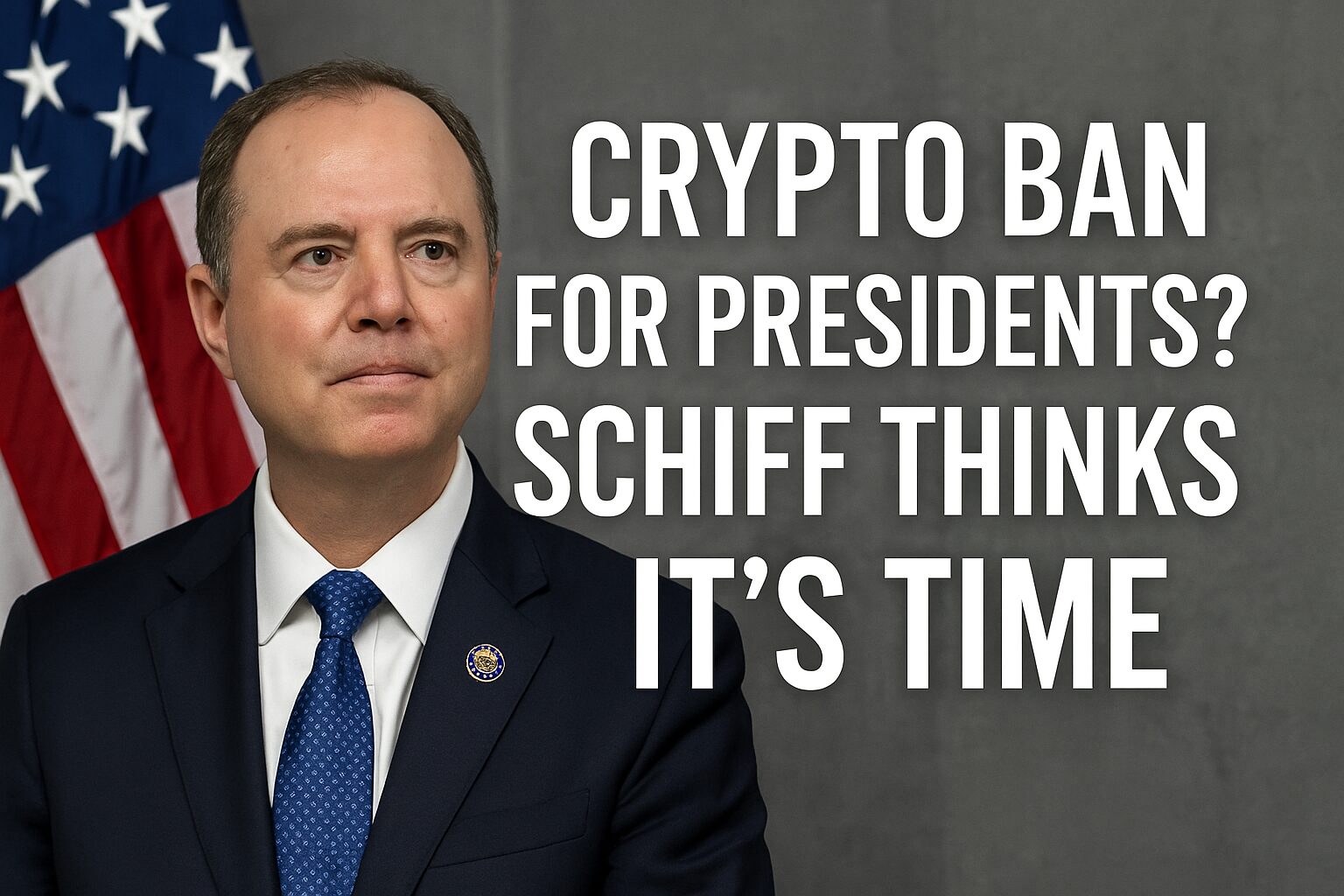A Bold Move to Reinforce Government Ethics in the Digital Age
Senator Adam Schiff has introduced a new bill in Congress that would prevent sitting U.S. presidents, vice presidents, and their immediate family members from investing in or earning profits from cryptocurrencies while in office. As digital assets continue to become a bigger part of the global economy, this proposed law aims to ensure that those in the highest positions of political power don’t exploit their influence for personal gain.
With increasing concern about ethics in public service—especially when it comes to newer, less regulated markets like crypto—Schiff’s proposal is designed to create firm boundaries.
What the Bill Proposes
The legislation would make it illegal for sitting presidents and vice presidents, along with their spouses and dependent children, to buy, sell, or hold any form of cryptocurrency during their term. That includes direct investments in coins like Bitcoin or Ethereum, as well as indirect holdings through trusts, shell companies, or any other financial instruments that could mask ownership or profit.
The bill’s language is intentionally wide-reaching, closing potential loopholes that have allowed political figures to invest behind the scenes in other contexts.
Why Crypto is the Focus
Digital assets have exploded in popularity over the last few years, moving from fringe investments to major financial products. At the same time, lawmakers and political figures have shown growing interest in crypto—both from a policy perspective and a personal investment standpoint.
Unlike traditional stock markets, crypto operates in a less transparent, often faster-moving environment, making it harder to monitor who owns what. This has raised red flags about potential conflicts of interest and insider advantage, especially if high-ranking officials were to make or influence crypto-related policy decisions while holding personal investments.
Preventing the Next Scandal
Although the bill doesn’t target any individual currently in office, it’s meant to be a preventive step. Schiff and other supporters argue that as crypto becomes more embedded in political and financial systems, clear ethical boundaries must be put in place before scandals erupt.
This is not the first attempt to regulate financial behavior among elected officials. Previous proposals have sought to ban members of Congress from trading stocks during their terms. Schiff’s new effort extends that principle to the executive branch—and adapts it for the digital age.
What Comes Next?
Whether the bill gains traction depends largely on bipartisan support. While there is growing public demand for transparency in government, crypto regulation remains a divisive issue in Washington. Some see it as overreach, while others consider it necessary for accountability.
Regardless of the bill’s fate, Schiff’s move signals that lawmakers are beginning to take crypto-related ethics more seriously—and that political leadership must keep pace with the evolving financial landscape.



